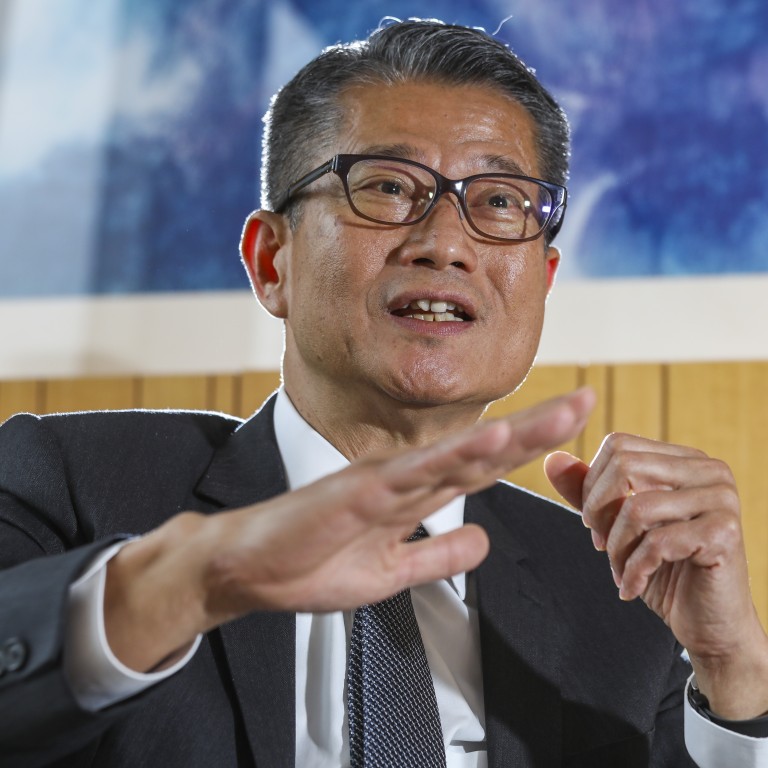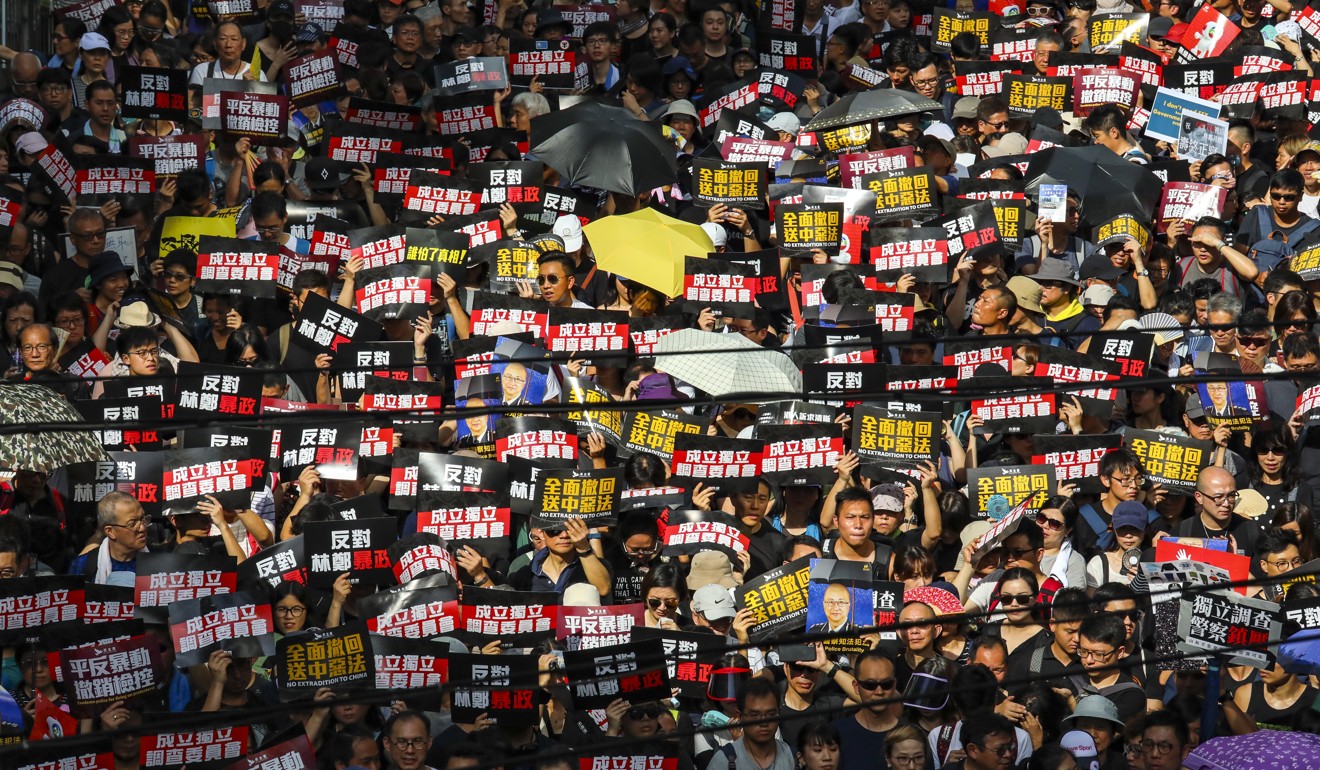
Extradition bill protests will hit Hong Kong economy as it reels from US-China trade war, Financial Secretary Paul Chan says
- City is already facing its slowest economic growth in two years due to trade conflict, weak retail volume and commodities exports
- Continued downturn could cause rise in unemployment, he says
“I am sure everyone understands that the longer the protests stretch on, the effect on small and medium businesses will become more obvious and the livelihoods of some groups of citizens will be impacted,” Chan wrote in his blog post titled “Internal and external troubles”.
He continued: “To foreign businesses and tourists, Hong Kong now appears unstable, which has affected their interest in coming to Hong Kong for leisure, business and investments.”

Another protest is set to take place on Sunday afternoon in the Central and Western districts despite police asking organisers to limit it to a rally.
Could Hong Kong extradition bill damage city’s economy?
In February, Chan had said Hong Kong was facing its slowest economic growth in two years as the trade war continued and retail volume and commodities exports remained weak. In May, the government reported gross domestic product for the first quarter of the year at 0.6 per cent, the lowest since the third quarter of 2009.
The government would announce its estimates for real GDP growth in the coming week, wrote Chan, reiterating his previous concerns about the negative effects of the trade war.
The value of exports had dropped continuously for eight months from 1 per cent at the end of last year to 9 per cent last month. Tourist arrivals had increased by 15 per cent in the first five months of 2019, but slowed to 8.5 per cent in June, Chan said.
He also warned that the continuous economic downturn would likely lead to an increase in unemployment, which is currently at a low of 2.8 per cent.
Extradition protests hammer Hong Kong economy
Meanwhile, Chief Secretary Matthew Cheung Kin-chung used a metaphor in his blog on Sunday to describe the current unrest. “Even though the weather is unpredictable, as long as we can calmly face the wind and waves, there will be sunshine even after the biggest storms,” Cheung wrote in his blog post about his visit to the Hong Kong Observatory, without elaborating.
In response to the controversy, the Chief Executive’s Office on Sunday said the city’s leader, Carrie Lam Cheng Yuet-ngor, and her governing team would continue to support the police’s law enforcement work.
After the Police Inspectors’ Association hit out at Cheung for “shattering our firm belief in our duty” on Friday, a government source said Cheung had been apologising for the administration’s handling of the extradition bill and was not talking about the police.
Separately, at the military summer camp graduation ceremony on Sunday, Lam urged Hong Kong youth to broaden their horizons and pay attention to the nation’s development in every sector.
“You are all talented people, as long as you can open your hearts to appreciate other people’s strengths and learn from each other, you will be able to grow beyond your own limits,” Lam said. She did not address the protests in Yuen Long on Saturday.

